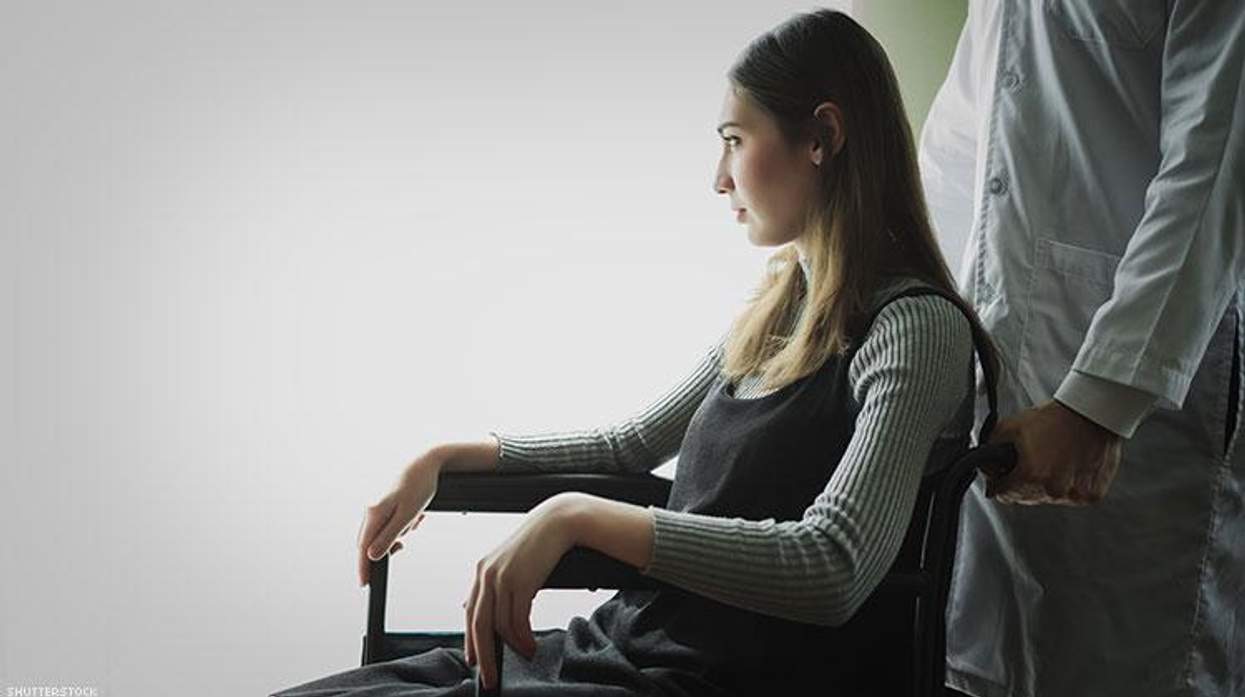When I read Andrea Long Chu's wrenching piece on her transition journey in The New York Times, I was moved and deeply impacted. In her piece, she gave voice in a sense to something many of us who suffer from dysphoria experience -- namely, medical care does not necessarily heal trans patients. I would -- like her -- do anything to have been born in a girl's body, to not have struggled with incongruence my entire life, and there is no doctor who can fix that.
Speaking from her own pain and pessimism about medical transition, Chu suggested that affirming care does not always make trans people happier, but that should not be a criteria as doctors provide them treatments they want -- and trans patients should have the right to transition care, regardless. Chu was speaking honestly, at a time when honesty is perilous because our enemies seek to exploit it at every turn. Almost on cue, those who wish to erase trans people pounced and cynically twisted her message to depict us as mentally unwell; there was outrage as well in the trans community as to why this piece was written -- or published -- because it emboldened bigots who claim that trans people are delusional while claiming affirming care should not be provided to us.
However, it pained me that people in the trans community chose to unleash their anger on Chu, someone who is suffering each day, as she describes. Many of the attacks on her from within the trans community were cruel and ignorant, further evidence that one person in an identity group does not speak for all, and should not be expected to. It is also tragic that certain individuals are insensitive to the very real worry in the trans community that Chu's piece will be weaponized; trans people know all too well, as any marginalized group has throughout history, that the words of one of us will be deployed as ammunition against all of us.
The frustration among trans advocates is reasonable -- to some extent -- that Chu's piece was published; however it is important to not assault her for writing her truth. Publications often run provocative and sensational perspectives on marginalized communities because such stories sell to normative audiences. Trans people -- like any vulnerable group -- are exhausted from being social curiosities at the mercy of public opinion, and are literally afraid that an isolated narrative may result in health care being denied to us.
However, we must recognize what is true to some of us is not necessarily true to all, and that distinction is lost in an oversimplification of identity thinking. My personal feeling of trans-ness is that for me it is a handicap, and one I wish I didn't have. I fear that my dysphoria -- which has immensely eased with affirming care and medical treatment -- may someday become too overwhelming.
At the same time, there are many trans people who perceive their trans-ness differently from those of us who experience dysphoria. They do not feel handicapped, they experience no incongruence, and have no pain or regrets other than social bias at their gender expression. It is possible for both experiences of trans-ness -- dysphoric and euphoric -- to be valid and that will require a nuanced understanding of what gender is for each of us.
While outcomes of medical care may not succeed in alleviating dysphoria for everyone, the evidence is clear that for most people they improve the situation greatly. Medical treatment in any situation does not have universal effectiveness and there are instances where interventions that medically saves lives for most, may risk the life of a particular patient. There is also a component that is beyond internal dysphoria that treatment can not address, and that is societal transphobia -- and many of us will remain in distress resulting from that regardless of treatment.
The problem here is not that Chu speaks faithfully to what many of us feel, which is that no amount of medical care will truly make us whole within. Our mixed reaction as a community to her piece comes from our fears about allowing others to define us and institutions to exert their control over our community's voice by selectively deciding which of our voices to print. Publications should be aware that for most trans people these issues are not intellectual discussions, especially as the fundamental rights of trans children and adults remain at the mercy of public opinion.
Chu should be praised for her bravery and in presenting the powerful message that our decisions about our bodies should be ours alone. However, many of us are justified in feeling that running this piece was perhaps irresponsible because it has the potential to be distorted and perhaps was published for that very reason. Let us not attack and shame our fellow trans advocates for differences in experience; instead let us hold institutions accountable for telling the full story of our lives and communities.
Those who seek to attack Chu as well as the trans community voices expressing anger at this piece are undoubtedly taking pleasure in what they perceive as cracks in our solidarity. Antagonists forget that such cracks have existed in every civil rights struggle, and fears that the actions or statements of one member of a vulnerable group will reflect badly on the entire community have existed throughout history. It is a testament to how far we have come in our struggle for liberation that we are having these conversations.
MISCHA HAIDER is a mother, activist, and researcher at Harvard University.




































































Charlie Kirk DID say stoning gay people was the 'perfect law' — and these other heinous quotes